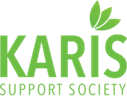What is Recovery Capital?
Recovery Capital is described as “the breadth and depth of internal and external resources that can be drawn upon to initiate and sustain recovery from addiction and related substance misuse concerns.” It is not a fixed value, rather it decreases in active addiction and increases during sustained recovery.
Components include (but are not limited to):
Social Capital: resources gained by the possession of a durable network of support (emotional support and access to opportunities) that promote commitment to recovery lifestyle.
+ Physical Capital: access to options for pursuing recovery and terminating substance misuse.
+ Human Capital: human attributes to maximize individual’s ability to attain personal goals. E.g. knowledge, mental health, skills, etc. Includes motivating factors.
+ Cultural Capital: Values, beliefs and the ability to use them to maximize opportunity. Emphasis on breaking “alternative” values associated with culture of addiction.
· The Recovery Capital model offers an individualized approach to care that focuses on the context of the participant’s recovery journey.
· By recognizing what resources can be activated within the individual, the participant is empowered to work from their strengths in the initiation and maintenance of their recovery.
· Working in partnership with supports, the individual is empowered to construct new systems of meaning consistent with their recovery-oriented lifestyle.
Think: How do you have fun?
Is your answer related to your history of addiction?
Helpful Resources:
Cloud, W., & Granfield, R. (2008). Conceptualizing recovery capital: Expansion of a theoretical construct. Substance Use & Misuse, 43(12-13), 1971-1986. https://doi.org/10.1080/10826080802289762
Center for Substance Abuse Treatment (US). Improving Cultural Competence. Rockville (MD): Substance Abuse and Mental Health Services Administration (US); 2014. (Treatment Improvement Protocol (TIP) Series, No. 59.) Appendix B, Instruments To Measure Identity and Acculturation. Available from: https://www.ncbi.nlm.nih.gov/books/NBK248425/
Recovery Transition Program. (n.d.). About peer mentorship | Recovery transition program. https://recoverytransitionprogram.com/peer-mentorship/about-peer-mentorship/
Mills, K. (2018, September 27). Why a strong support system is essential to lasting addiction recovery. RECO Institute.
